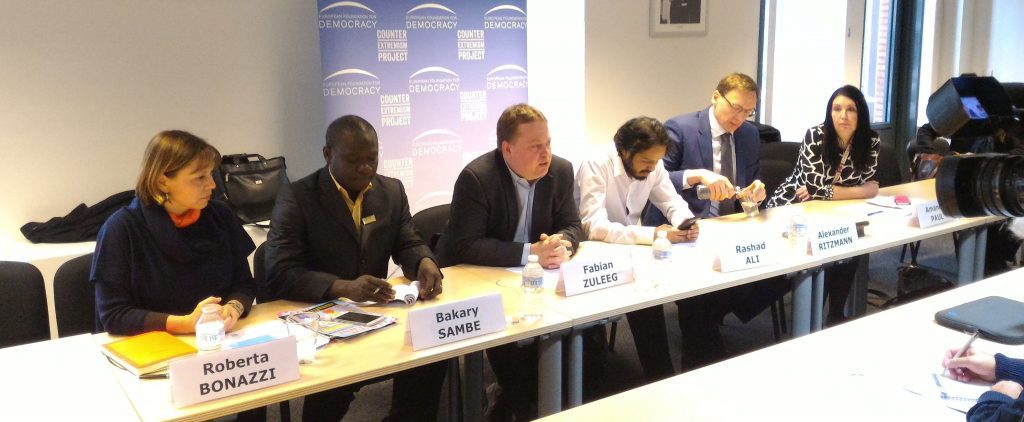Event

Defining the phenomenon of jihadist radicalisation: Local and global drivers and catalysts
On 22 March 2016, the European Foundation for Democracy and the European Policy Centre, in collaboration with the Counter Extremism Project and Italian Institute for International Political Studies (ISPI), hosted a closed-door policy dialogue to discuss the phenomenon of jihadist radicalisation with a particular focus on local and global drivers and catalysts. The intended guest speakers were Gilles de Kerchove, EU Counter-Terrorism Coordinator of the Council of the European Union, Gilles Kepel, Professor, Sciences-Po Paris and Institut Universitaire de France, Rashad Ali, Head of Strategy at the Institute for Strategic Dialogue, EFD Senior Policy Advisor Alexander Ritzmann and Senior Policy Analyst at the European Policy Centre, Amanda Paul who moderated the briefing.
Due to the terrorist attacks which occurred only hours before the briefing at Zaventem airport and Maelbeek metro, both Gilles de Kerchove and Gilles Kepel were unable to attend the briefing. In their place, EFD Senior Fellow Dr. Bakary Sambe and EFD Executive Director Roberta Bonazzi joined the panel.
Is an analytically accurate and practically workable definition of the jihadism phenomenon within reach? What are the local and global drivers and catalysts of jihadism, and how do these interplay with various and multi-dimensional factors at stake both in the MENA region and across Europe? How can governments and societies effectively tackle this phenomenon in the context of a comprehensive, non-polarising and multi-stakeholder approach? These are just some of the questions that were addressed at the first of a series of six policy dialogues that the European Foundation for Democracy and the Counter Extremism Project will undertake in cooperation with the European Policy Centre.
